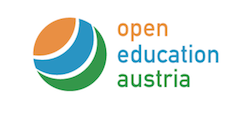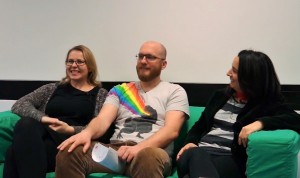Im FNMA-Magazin 01/2017 haben wir einen Kurzbeitrag zur informatischen Grundbildung gemacht rund um „Pocket Code – Programmieren für Alle mit einem offenen Online-Kurs„. Das ganze ist auch auf unserer Webseite zu finden.
Kurzeinleitung:
Da eine großflächige oder vielleicht sogar flächendeckende Maßnahme für das Bildungssystem nur sehr schwer umsetzbar ist, hat man sich entschlossen, einen frei zugänglichen und kostenlosten Online-Kurs (MOOC) zu erstellen. Unter dem Namen „Learning to code – Programmieren mit Pocket Code“ wurde dieser im Herbst 2016 angeboten. Dieser Kurs wird auf der MOOC-Plattform iMooX (http://imoox.at) zur Verfügung gestellt (Kopp & Ebner, 2015) und soll Kindern die Möglichkeit geben, erste kleine Apps selber zu gestalten
[Beitrag im FNMA-Magazin]
[Beitrag @ ResearchGate]
Zitation: Ebner, M., Janisch, S., Höllerbauer, B., Grandl, M. & Slany, W. (2017) Pocket Code – Programmieren für Alle mit einem offenen Online-Kurs. FNMA-Magazin 01/2017. S. 16-19 ISSN: 2410-5244










